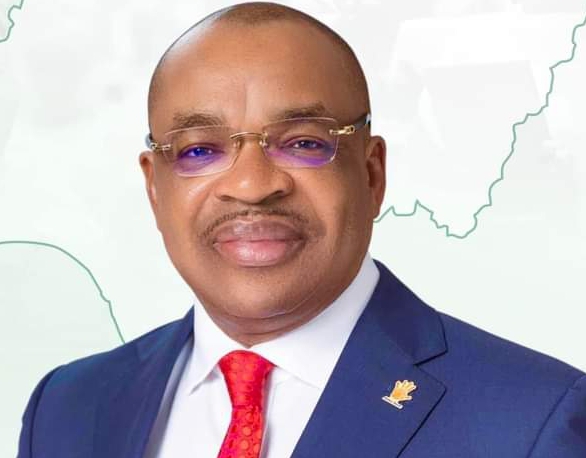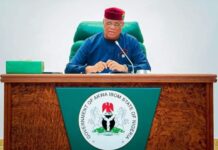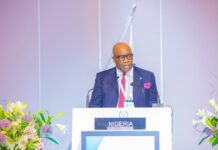By Benjamin Jimmy
Many policies have opened up the landscape of governance in Akwa Ibom State in the last seven years and ten months of Governor Udom Emmanuel on the saddle. One out of these is the inclusion of women in governance through appointments and variegated opportunities. There has also been an enabling environment for more women to embrace governance and see it as a homestead where they can fit in, participate and contribute their quota to the development of the state.
In 2019 when Governor Udom Emmanuel began his second tenure in office, he presented his 8-point agenda where inclusion, youth and women empowerment were given a good mention. Almost four years after, the administration has made good its promise of women inclusion in governance. Many women are now in positions of leadership and influence and even with more propensity to explore much wider spectrum of opportunities to continue to contribute to the state workforce. With so much tenacity and sufficient managerial bent that these women have shown in their various positions, it therefore stands to agree that the aged-long rustic mentality where women inclusion implies using them as a support base is no longer tenable. This has been demonstrated through massive impact that Dr. Martha Udom Emmanuel’s pet-project – Family Empowerment and Youth Re-orientation Path-Initiative, FEYReP, has created. This impact clearly is a testament that women, when given an opportunity, would recreate a new world of possibilities for all.
From available records, the present administration has involved more women in offices that are directly linked to the workforce of the state. However, many would think that having half of the commissioners and Special Advisers as women captures the terms – women inclusion. But involving women in governance does not necessarily imply that the National Gender Policy of 35% affirmative action of 2006 would have to come into play. It means that women would have to be involved in areas that are essential to the productive capacity of the state, regardless of the number. This is the narrative the current administration has driven.
The recent appointment of Mrs. Ekereobong Umoh as chairman, transition committee to bridge the outgoing and the incoming administrations is a typical case of women inclusion in governance. Mrs. Umoh is tasked with her team, to do the transitory work very seamlessly. She is a former chairman, Akwa Ibom State Civil Service Commission. Other women in the committee are: Dr. Ini Adiakpan, Mrs. Esther Inyang and Mrs. Bella Akpanya. The inclusion of these women in such onerous task speaks of the deep understanding this administration has that inclusion means recognizing the capacity of women as co-partners in any endeavour that wants to be a success story.
In March 2018, the present administration appointed five new permanent secretaries. Out of this number, Mrs. Helen Ante and Mrs. Margaret Edem made the list as permanent secretaries of the womenfolk. In 2021, Mrs. Esther Inyang, Mrs. Grace Paulinus Jim, and Mrs. Abasiekeme Victor Essien were also appointed as permanent secretaries. In February, 2022, Mrs. Regina Isaac Okonko was equally appointed. In January, 2023, Mrs. Atim Chelly Okoko and Mrs. Iquo Okon Abia, Esq. made it to the list of permanent secretaries in Akwa Ibom State. These are women whose contributions led to their elevation.
READ ALSO : Akwa Ibom State 10 years education roadmap: Governor Emmanuel is ticking the timelines
In the State Executive Council are three women who have imprinted bold signatures of innovations in their respective ministries. Dr. Offor Offiong is the Commissioner in the Ministry of Agriculture; Dr. Ini Adiakpan is in- charge of Women Affairs and Social Welfare, while Mrs. Idongesit Etiebet superintends over Education Ministry. This administration may not have had a significant number of women in the State Executive Council in the last seven years and ten months, however, what is currently the case is that the number women lack in the council is made up for, in many other sectors where there are women dominance. This is the logic of women inclusion by Governor Emmanuel -led administration.
A lot of women have also been appointed into boards of the state government as chairmen and given mandates which they have delivered on. The chairman, State Secondary Education Board, Dr. Ekaette Ebong is one woman whose tenure in the board has reordered the state of things in the state secondary education. Dr. Ebong’s administration has recorded significant milestones such as the recruitment of more teachers in schools, routine monitoring and evaluation, as well as constant interface with heads of schools in the state which hitherto was a huge challenge. Although the existing monitoring mechanism predates Dr. Ebong’s tenure, what is worth mentioning is that her tenure brought about the greasing of the wheels of these machineries. This has tremendously up scaled a lot of other mechanisms, more so with the collaboration of the Honourable Commissioner for Education, Mrs. Idongesit Etiebet; a woman that has demystified gender and status in leadership.
The Executive Secretary, Akwa Ibom Christian Pilgrims Welfare Board, Mrs. Nsikak-Abasi Orok is another token of evidence of women inclusivity in governance by the present administration. Since she assumed the position, she has left no one in doubt of her capacity to remove all the bottlenecks often associated with the process leading to one’s movement to the Holy Land. Very unassuming persona, Mrs. Orok has contributed so much one of which is the removal of the blockade that arrogates some sort of significance to some ‘ elevated class of people’ in the state.
Acknowledging the level of women inclusion in the present administration, Dr. Ini Adiakpan, Hon. Commissioner for Women Affairs and Social Welfare, while speaking at the 2022 International Women’s Day celebration, said Governor Emmanuel and wife, Dr. Martha, had already broken the biases in Akwa Ibom through the election and appointment of women into various positions in the state. “During their administration, women have witnessed an enhanced visibility of women at decision making levels in the state and the Akwa Ibom women are hugely indebted to His Excellency for being a promise-keeper in all areas of leadership template”.
Governor Emmanuel-led administration has also received commendations for creating the enabling environment for women to also aspire for elective positions. The state today can boast of a female Deputy Speaker, as well as chairpersons of local government areas. These are influential positions that women have wielded which account for the importance the current administration places on women inclusion.
While thumbing up Governor Emmanuel’s administration for women involvement in governance, Mr. Moses Ekpo, Deputy Governor of Akwa Ibom State said last year during the 60th birthday thanksgiving celebration of the Deputy Speaker and member representing Okobo State Constituency, Rt. Hon. Felicia Bassey, that women inclusion in this administration “ is a deliberate policy targeted at encouraging the womenfolk to contribute their quota by taking up challenging roles that will enhance the progress and development of the state”.
More women have been elected chairpersons and vice chairpersons of local government councils under the Emmanuel’s administration. About 80 young women in the State are serving as councillors in the local government legislature. This number is unprecedented. It underscores the determination of the Governor to bring more women into politics and positions of public service.
















